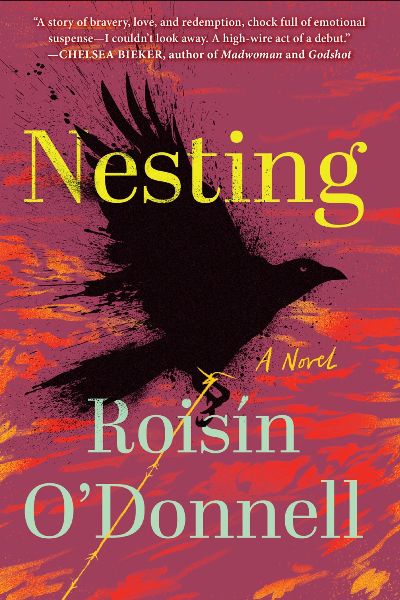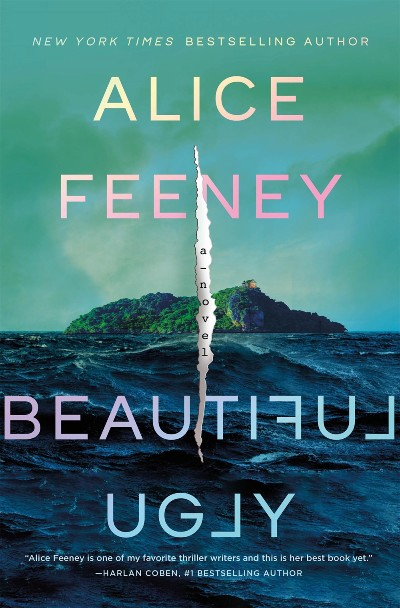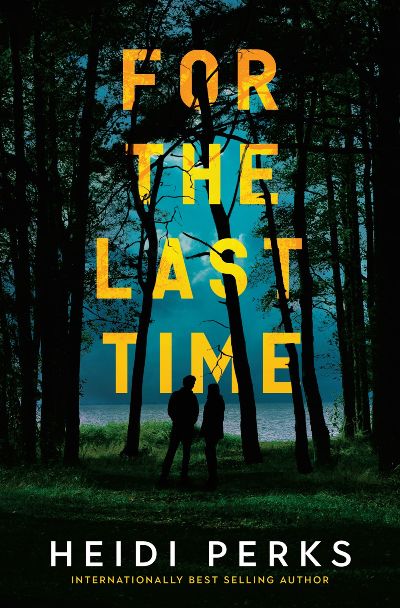Ali Azeem is a successful Mumbai wedding photographer, but, to his worried Ma, his life will only begin when he marries the right Ismaili Muslim girl. However, on his first arranged meeting with pretty and reserved Maryam Khan, the daughter of New York real-estate tycoon Abbas Khan, Ali is attracted, not to Maryam, but to her divorced older sister, the sensuous and mercurial Farhan. Still, because of his father’s financial difficulties, Ali agrees to the match with Maryam. After the wedding (a marathon, multiday affair vividly described), the newlyweds move to Manhattan, and Ali finds himself in a glamorous world of money, power, and prestige. But the naive bridegroom soon learns that beneath the glittering surface lie dark family secrets. Farhan, with whom Ali has embarked on a torrid affair, warns him against her domineering father: “Papa is a monster.” What is Abbas’s connection to the serial murders of young Indian women in Queens, as Farhan implies? Shifting between Ali’s first-person narrative and Farhan’s diary entries, Ahmad skillfully builds page-turning suspense with carefully plotted twists and red herrings that keep readers guessing until the chilling conclusion. His exceptional thriller is also a layered portrait of an immigrant family that has made it big in America and the moral costs paid for this success. With rich character development (Farhan is larger than life) and emotional storytelling, it’s hard to believe this is a first novel.
Marriage & Divorce
A lean, wonderfully written story of a husband and wife, serial killers who target only bad men who deserve it: primarily rapists and sexual abusers. While the two couldn’t come from more dissimilar backgrounds—British Hazel has dragged herself out of a childhood of poverty and neglect and is now a successful painter, while American Fox, a finance guy, descends from one of the USA’s wealthiest, most prominent families. But it was their joint passion for murder that brought them—and keeps them—together. Until, that is, in this version of Mr. and Mrs. Smith, Hazel discovers she is pregnant, and off to the London suburbs they go. At Fox’s insistence, they agree to no more murders until baby Bibi is 21—how can they risk incarceration, which would leave Bibi an orphan? But Hazel can barely tolerate motherhood, never mind forgoing murders, and it’s thanks to her one “mom friend,” Jenny, that she is able to keep it together. Until she suspects Fox of harboring secrets, she develops a few herself, and Jenny turns out to be, of all things, a cop. The pace is just perfect, the characters alternately funny and dark, and the head-spins relentless.
Even during her sly, vicious husband Ryan’s “good” moments, Ciara feels “part of her body (toe tips, ear lobes, the backs of her knees) is listening, tense, on high alert.” And in his bad moments, “The toppled chair. The smashed bulb. The broken handle. Her bones and blood.” She’s left before, but his rage at her absence was too dangerous to endure. But when she sees a new opportunity, she takes her two small daughters and flees. Here the reader will begin to understand the naivete of “why doesn’t she just leave?” (Why doesn’t anybody ever ask why he doesn’t “just” leave?). Dublin’s rental market is impossible, so Ciara and the children are homeless, forced to stay in a cramped hotel room provided by the city. Ciara, who is pregnant with her third child, has no job, at controlling Ryan’s insistence, of course. Her mother-in-law tells her that she’s going to hell for treating “poor Ryan-Patrick” this way. Child support is non-existent, and Ryan is determined to take full custody of the children even though he appears to hate them and has never lifted a finger to care for them. Watching Ciara claw her way out of this is a gripping view of endurance, terror, bravery and the small and large kindnesses that make her life bearable. The characters here are superbly drawn, the dialog spot on, and I can’t wait for more from this debut novelist.
Novelist Grady Greene can’t wait to share his good news with his wife, Abby: he’s just made the New York Times bestseller list. He calls her, she’s driving home and not far from their house, only to hear her slam on the brakes, telling him that someone is lying on the road. Then silence. Grady heads out to find her and discovers that the car is empty, the door wide open, her cellphone abandoned, and Abby gone. So begins Grady’s year of mourning for his disappeared wife. To break his melancholia, and kick-start his work on his next book, his agent offers a little cabin on a barely habited Scottish isle. Grady takes her up on the offer, only to discover that there is, you guessed it, no way off the island—what ferry schedule?—and the two dozen or so female-only residents are a bit beyond odd. But oddest of all? The quick glimpses he has of a woman who is the spitting image of his wife. The creepiness, the occasional bursts of humor, the horrendous history, and of course the inevitable twists, all of which layer over one another, make for one terrifying ride.
A delightful satire—fun, fast, and furious—of the high-flying tech industry. Every year adtech start-up Aurora brings together its top executives for a weekend retreat (think PowerPoint presentations and Jet Skis), this year, it’s in Miami Beach. It’s quite a cast of characters: for starters, the CEO models himself on Churchill. In the hands of other novelists, the cast could become a messy menagerie. But each character here is so well-defined, beginning with the company’s latest hire, Caitlin Levy, Head of Events (curious since Aurora has never sponsored an event). But just when the second day has started and everyone is beginning to sober up, there’s the announcement that the company has been sold, and suddenly everyone is if not very, very rich, then quite rich. It would be time to celebrate, except that one of the high-level executives has disappeared. And the entire retreat is under surveillance by the tech media, who can sniff a good story. Like Rosenblum’s first novel, Bad Summer People, this novel delights in exploring what lies under the surface. The adtech folks would call that a deep dive.
At first, this novel seems to be a predictable, mildly entertaining thriller. Erin and Will take themselves off to marriage counseling because something has gone wrong, at least for Erin, who is suddenly putting her husband at arm’s length. But what’s the source of the problem? Even their counselor, Maggie, becomes consumed trying to understand what has gone awry in their marriage, especially when Will is, annoyingly, nearly the perfect man. Then, out of nowhere, Perks drops a clue that made my head spin, cranks up the narrative’s pace, and pulls us deeper into the disturbing past of Erin and Maggie. Since this is from multiple perspectives, and jumps skillfully around the narrative time-line, readers will have fun trying to put this complex, fractured and totally compelling story together. A perfect read for fans of Lisa Jewell and B.A. Paris.
The scene: Hurricane Harvey hitting affluent Sugar Land, TX, in 2017. Readers will fear the worst, knowing how bad the storm became, but Jia Shah feels she’ll be safe at her sister Seema’s sprawling, ostentatious house. Her brother-in-law, who luckily knows everything, assures all that nothing can happen to his house. Misogyny’R’Us mother-in-law and overbearing sister notwithstanding, Jia believes that once she and her son ride out the storm—and her family’s endless comments about her dire fate as a divorcee—they can get back to life as they knew it. Then Jia notices that the neighborhood seems curiously empty. Except, that is, for a neighbor who stares in the window. Soon things become far more than just creepy as the bodies start to pile up. Debut author Parekh builds tension wonderfully as the storms outside and inside the house threaten to wipe out everything Jia holds dear; she also excels at provoking exasperation at the backbiting family’s antics while crammed into an inescapable nightmare. For those who like locked-room and closed-circle dramas.
Since forever, French authors and screenwriters have been writing about heterosexual marriage and infidelity as though these were the only tales worth telling. They are not. But My Husband certainly does a smashing job of upending the traditional domestic narrative with one that is terrifically creepy, darkly obsessive, and uncomfortably humorous. The finely translated novel—a fast read, if there ever was one—is told from the wife’s perspective, a woman who’s entire being is centered on pleasing/controlling her husband. At one point, she describes herself as co-dependent, but that’s like saying the Pope is Catholic. A beautiful woman with a great wardrobe and a lovely apartment in the Paris suburbs, she pretty much ignores her two young children (“Today, I think I can say with certainty that I could survive the death of one of my children, but not of my husband.”) The perfect life? Restricted to her home with her husband, “endless one-on-one time…Sometimes I picture myself alone on the Earth with him.” Got the picture? But the husband isn’t perfect; sometimes when they are sitting on the sofa, watching TV, he’ll be the first to stop holding hands. Infractions like these deserve punishment, usually moving or hiding his personal belongings. It’s mesmerizing, and try as one might, you can’t look away. As the book progresses, the reader’s anxiety mounts, until we reach an ending which is quite the tailspin. Hip reading groups will tear each other apart over this book.
Yes, it’s only October. But my money is on Bad Summer People as the best beach book of the summer of 2023. Set in Salcombe, a made-up community on Fire Island—not the like the gay Pines, more the reclusive and ritzy Saltaire—this book, in the great literary tradition of Peyton Place, has it all: adultery, fashion, tons of gossip, backbiting, lying, hot sex with the tennis pro, tasteful plastic surgery, alcoholism, and even a corpse. Plus the sort of casual racism and classism liberal one-percenters indulge in. It opens with a prologue, set at the end of August, in which a body is discovered face down off the boardwalk. The book then backs up to late June, as the all-white residents arrive from the Upper East side and Scarsdale for the start of a new season. From there we follow the tumultuous summer in chronological order, moving quite handily among a group of narrators, from the above-mentioned Stanford tennis coach to the Filipino nanny to the gay Yale student/bartender and many more. At the gravitational center of the book are Jen Weinstein and Lauren Parker, the “it moms” who married into Salcombe—their husbands are best friends—and oversee the social action. Not another word from me, lest I spoil any of the fun, except to say the identities of both the victim and the murderer pack quite the punch. This book really hits the sweet spot for popular fiction and will appeal to a broad swathe of readers.
Ready for a psychological game? Liz Bennett wasn’t, but that’s what her marriage has turned out to be—but is the game a one-sided figment of her imagination, or is her husband, Arno, an adulterer who’s playing her along? The backdrop to the maybe game is deep unhappiness and insecurity on Liz’s part. She and Arno are new parents, and motherhood is more difficult than she imagined. It’s not very enjoyable, with baby Emma looking at her “like she’s an elderly spinster I’m grooming for her banking information,” and no time or energy to write a follow-up to her semi-successful first novel. At least she has Arno, who’s worried about his wife’s happiness and shows love and support for her at every turn—a steadfast situation that she’s terrified to lose after she sees a text to him from an attractive coworker, a message that could signify a romance. Liz is soon spiraling into an abyss of fear and suspicion, one that’s incredible enough to keep readers turning the pages but believable enough to elicit real empathy for this broken soul. Sullivan has a way with characters, using dialog and Liz’s astute, cutting observations to bring Arno, crunchy-granola nanny Kyle, and bitchy-perfect sister-in-law Rose (“I’ve been up since 4 a.m.”) to gossip-worthy life. Fans of women’s fiction will eat this up.
- 1
- 2










